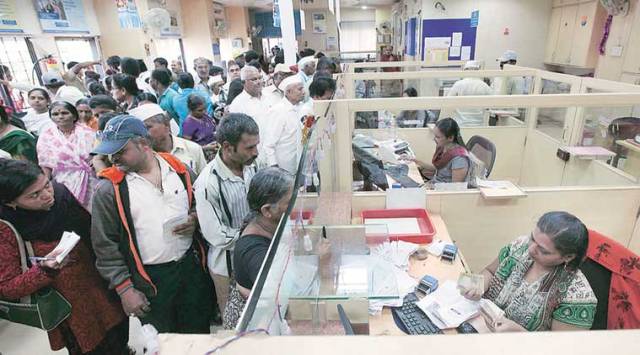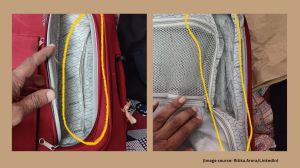Cheque-bounce capital: Almost 4 in 10 cases pending in Delhi’s courts relate to dishonoured cheques; highest incidence in India
While 85% of the data for Delhi in the statistical reports is updated, 15% (for three districts) is about a year old – this means that the actual rise in pendency of cases under Section 138 of the NI Act could, in fact, be a little more than 1 lakh so far this year.
 Cheque-bounce cases are usually heard by magistrate courts and special digital NI Act courts.
Cheque-bounce cases are usually heard by magistrate courts and special digital NI Act courts. As many as 5.55 lakh cases relating to cheque-bounce claims are pending in trial courts in Delhi, making up approximately 36% of the total pendency, official data show.
Statistical reports of all trial courts in Delhi accessed by The Indian Express show that pending cases under Section 138 (Dishonour of cheque for insufficiency, etc., of funds in the account) of The Negotiable Instruments Act, 1881 (NI Act) have risen by 1 lakh in just nine months. That works out to 370 new cases every day on average.
Cheque-bounce cases are usually heard by magistrate courts and special digital NI Act courts.
As of the end of December last year, more than 4.54 lakh cases relating to cheque-bounce claims were pending in trial courts in Delhi. This was 31% of all pending cases in Delhi at the time, and Delhi had the highest number of cheque-bounce cases in the country relative to population.
Nine months on, Delhi has 13.49 lakh criminal cases and 2.17 lakh civil cases pending, data on the National Judicial Data Grid – a comprehensive online database of orders, judgments and case details of 18,735 district and subordinate courts and High Courts – show.
While 85% of the data for Delhi in the statistical reports is updated, 15% (for three districts) is about a year old – this means that the actual rise in pendency of cases under Section 138 of the NI Act could, in fact, be a little more than 1 lakh so far this year.
Section 143(3) of the NI Act says that “Every trial under this section shall be conducted as expeditiously as possible and an endeavour shall be made to conclude the trial within six months from the date of filing of the complaint.”
In fact, the resolution of cases typically takes much longer than six months.
Due to the large pendency at the NI Act courts, consecutive hearings in cheque-bounce cases take place with a gap of 10 months on average and, in several instances, even a year.
“We are working for 12 hours a day, yet the pendency doesn’t go down… Sometimes more than 125 cases are heard in the course of a single day. We have no option but to give a longer date,” a staffer at a court that exclusively hears cheque-bounce claims said on the condition of anonymity.
The Indian Express reported in June this year that judges of 34 digital NI Act courtrooms across six court complexes in Delhi have been moved to the Rouse Avenue court complex. However, court staff like the readers or ahlmads, and stenographers, etc. continue to operate from their respective districts. A total Rs 8.18 crore was spent on moving the NI Act courts to the Rouse Avenue complex.
Several lawyers who practise at these courts said they did not expect the move to the Rouse Avenue complex to make a significant difference to the pendency of cheque-bounce cases.
“Also, the decision to move the digital courts to Rouse Avenue has created a hurdle for litigants and advocates because judges are required to record the evidence of witnesses physically once a week, which makes it impossible for the courts to record evidence in all cases in a single day,” Advocate Paras Jain said.
“We were assured that the decision would be taken back when the Karkardooma Bar Association called off its strike, but no decision has been taken yet,” Jain said.
Lawyers at Northeast Delhi’s Karkardooma courts complex had gone on a hunger strike for four days at the beginning of July to protest the moving of the 34 digital NI Act courts to Rouse Avenue. They had called off the strike on July 8 after receiving an assurance from Delhi High Court Chief Justice Devendra Kumar Upadhyaya that their concerns would be addressed at the earliest.
=================
WAITING FOR RESOLUTION
Cases under Section 138 of The NI Act
North West* – 22,376
North East* – 4,859
Shahdara – 14,233
South West – 2,13,745
Central* – 44,783
New Delhi – 1,47,801
South East – 63,264
South – 44,002
*Pendency in judicial districts of Delhi. Data for North East, Central, and North West districts from April 2024, May 2024, and September 2024 respectively. All other data recent. Source: Statistical reports of trial courts.







